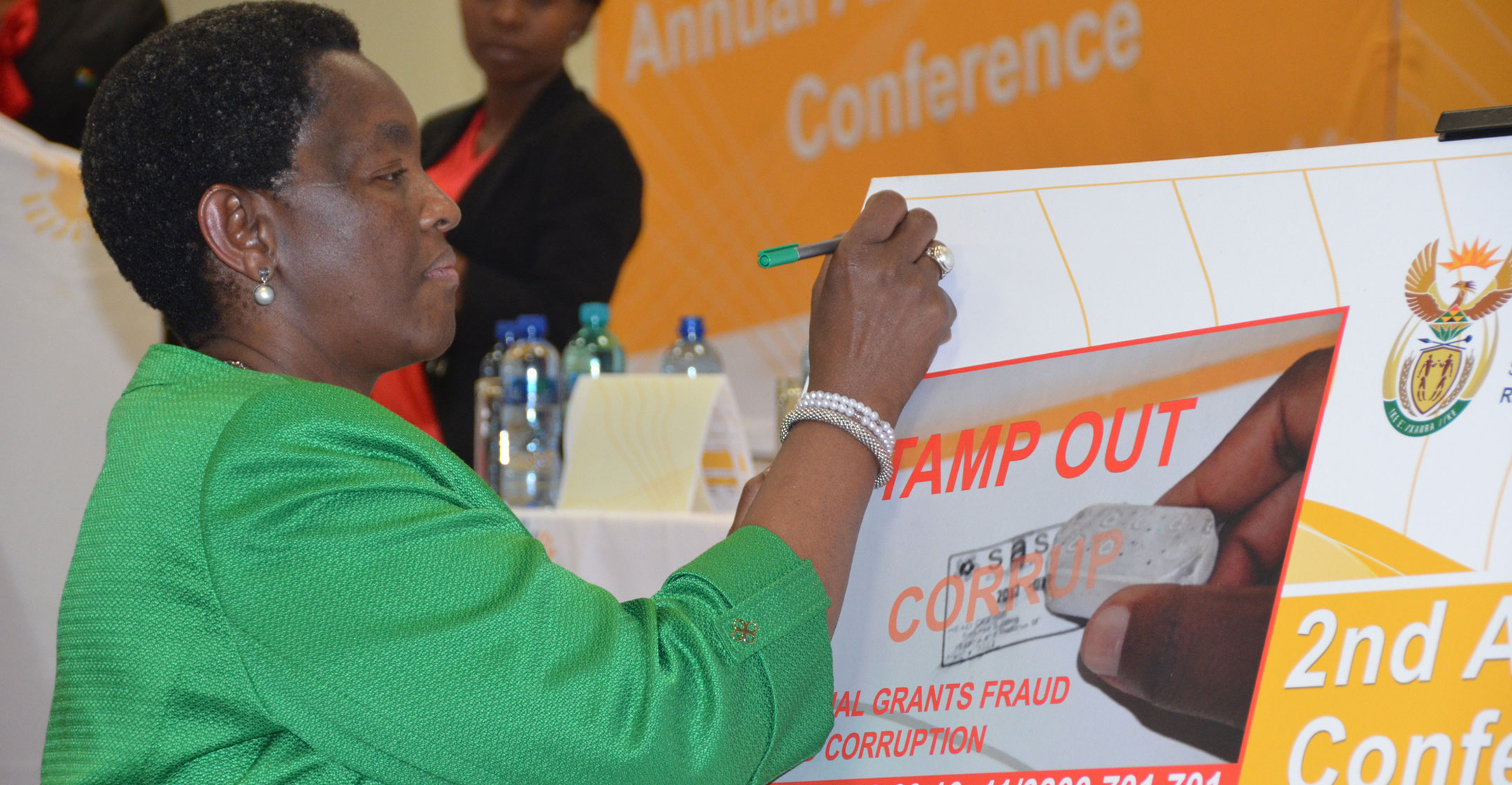
[dropcap]T[/dropcap]he constitutional court has ordered the social development department and the South African Social Security Agency (Sassa) to begin an investigation over whether minister Bathabile Dlamini should be held personally responsible for the social grants crisis.
The parties in the investigation — mainly Dlamini, Sassa CEO Thokozani Magwaza and former social development director-general Zane Dangor — must report back to the court within 14 days to determine the role of Dlamini in the social grant fiasco.
The constitutional court was assessing whether Dlamini should pay certain legal costs from her own pocket in the matter brought by civil rights group The Black Sash for the court to supervise a new contract for social grant payments.
The contract between Sassa and Net1 UEPS Technologies subsidiary Cash Paymaster Services (CPS) was declared invalid by the same court three years ago as it didn’t go through proper tender processes. The contract was concluded in 2012.
In March, the court ordered that the contract to distribute social grants to 10,5m recipients between CPS and Sassa should be extended until March 2018.
The order for the new investigation was delivered by justice Johan Froneman on Thursday at the constitutional court. Work streams had been established in July last year by Sassa in order to prepare it to take over social grant payments when the CPS contract expired.
Dangor, in his affidavit, said he realised that the work streams hadn’t made progress on its mandate, as communication processes bypassed certain Sassa executive board members and social department officials.
Two-year extension
Instead, Dlamini was pushing for CPS’s soon-to-expire contract to be extended for another two years. This allegedly frustrated the work-stream process, resulting in the launch of a technical team comprising of officials from national treasury, the social development department, the South African Reserve Bank and Sassa. The viable option explored by the team was for South Africa’s major banks and the Post Office to be responsible for grant payments.
Froneman said Dlamini must be added in the matter in her personal capacity and her conduct in the work streams needed to be clarified first before the responsibility of legal costs could be determined. If the investigation, which will be presided by a referee, fails to reach an agreement, then the court will issue further directions.
Froneman, in his judgment in March, put the blame squarely on Dlamini for the Sassa crisis, as she is the minister accountable to parliament and holds “executive political office”.
In an affidavit, Dlamini blamed Sassa CEO Thokozani Magwaza for the social grants crisis.
Dlamini said Magwaza didn’t inform her about the looming crisis and that Sassa didn’t have the capacity to take on grant payments when CPS’s contract expired on 31 March 2017. Dlamini claimed that she was only advised in October 2016 that Sassa would not be able to take over grant payments or even conduct a new tender process.
Dlamini argued that she should not be held personally responsible for the Sassa crisis, saying that a new tender process for a new social grant payment contract was held but there were “ultimately no compliant bids”.
Magwaza supported Dangor’s version, adding that Dlamini lied in her affidavit. He said Dlamini knew as early as July 2015 about the inability of Sassa to take over social grant payments as she was “in control of the process and knew or ought to have known of all developments in this important process and matter”.
Froneman said the court acknowledged the allegations made by Magwaza and Dangor about Dlamini in their affidavits, but they were “untested in evidence”.
- This article was originally published on Moneyweb and is used here with permission




